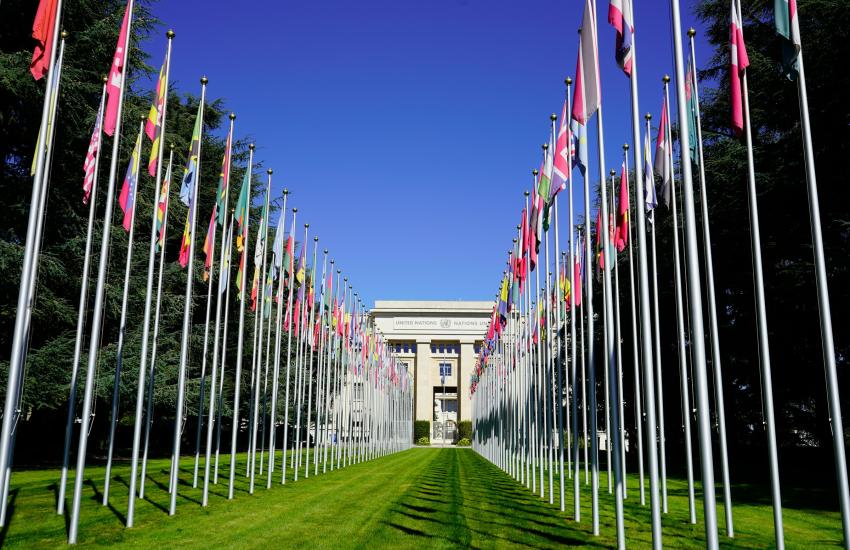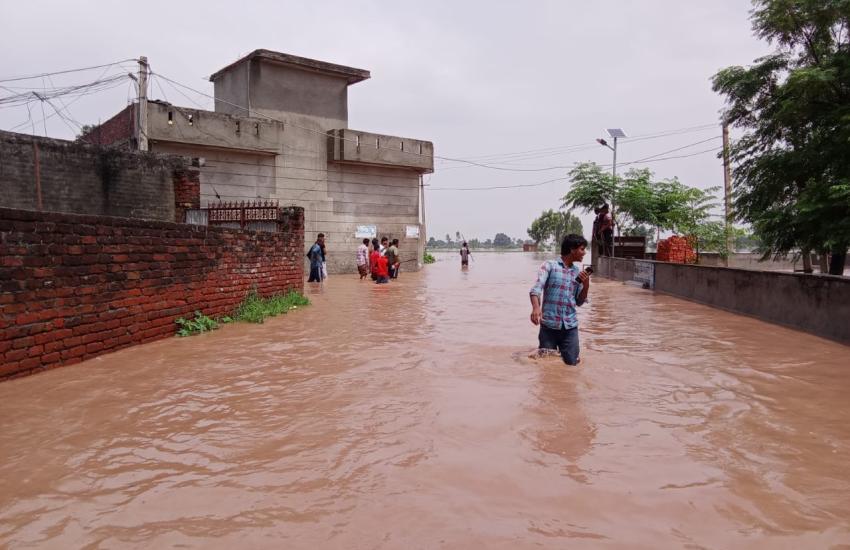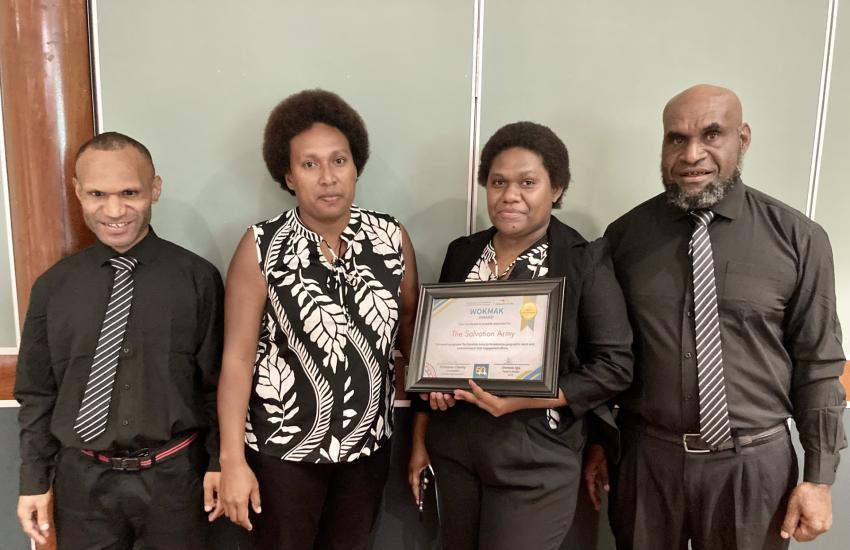Damaris Frick, a German Salvationist, is currently deployed by The Salvation Army’s International Emergency Services in Chennai, India, where she has been preparing reports on previous relief work. At the beginning of November, as the region of Andhra Pradesh was hit by major flooding, she found herself in the middle of a new crisis. At first hand she is discovering how cyclones impact many of the world’s most vulnerable communities every year. Here she tells her story:
DISASTERS happen regularly in some parts of the world. From the end of October until mid December there are monsoon rains in India. But this year there is more rain than for the past 40 years. The heavy rains flooded whole areas. Many houses are under water and some have been completely destroyed. There are villages which are still inaccessible from outside – for some people the only means of transport is boat and in other villages people had to be evacuated.
The rains have been falling for 10 days and I have met people who have not eaten for a long time. Food is the most urgent need.
The Salvation Army saw the need and reacted quickly by sending assessment teams. Nine areas were selected in which the relief work should start. Captain John Kumar, the local emergency relief manager, formed nine teams. Salvationists – from the most senior staff members to local officers and helpers – willingly volunteered to go and get their feet wet and uniforms dirty in order to help people in need.
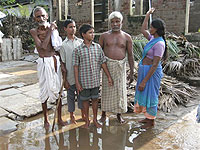 |
| Mrs Javeamma, her husband, father-in law and sons show the roof that was destroyed by the monsoon |
When the teams spread out I was sent with Major Rathan to Machilipatnam to support Major Prakashrao and his wife who have been working in this area since the Indian Ocean tsunami. Machilipatnam is one of the areas which is greatly affected by the present emergency. Only yesterday I read that, in this area alone, 10,400 houses were completely destroyed with a further 25,600 badly damaged. Almost 38,000 people find themselves seeking refuge in 300 temporary shelters. According to local newspaper reports 120,000 people are affected by the monsoon in the Machilipatnam area alone. Some villages are still impossible to reach.
After purchasing rice we hired a tractor because the roads to Chinnapuram village, our destination, are barely visible due to the high water levels and it would be impossible to drive there by car.
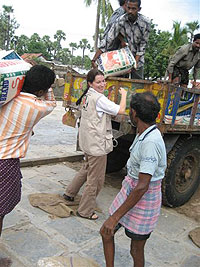 |
| Damaris helps to load bags on a tractor |
On the way we made our first stop in Saradanagar village. Because it was very late when we arrived it was not possible to distribute the rice that day, so we left bags of rice to be distributed the following day. One woman, Javeamma, took me to see her house. The roof fell in when the heavy rains came. Javeamma's husband is deaf, mute and blind. Neither he nor his elderly father will be of much help to Javeamma with the repairing of the roof. She is glad to have her sons though. 'Please don't forget the people of our village,' she begged when we had to leave.
From Saradanagar the trip to Chinnapuram took us more than an hour. We drove through unreal scenery. Where there used to be fields there were now lakes and little canals had now become rivers. Sometimes you couldn't even tell where the road was. It felt like we were floating through the sea.
Finally we made it to the village where our tractor was immediately surrounded by crowds. The names of all the beneficiaries – the head of each family – had already been listed and every family would get five kilos of rice. I was told this would be sufficient for maybe three days as rice is the main staple of the people in India. We transferred the rice into the bags and vessels which each beneficiary brought.
I spoke to Mr Prasad, a 62-year-old man who told me that around 70 per cent of the houses in his village are under water. Most people in the community work as agricultural labourers who are hired on a daily basis. There will be no work in the near future – the entire crop in this area is destroyed and the farmers themselves will suffer a huge loss.
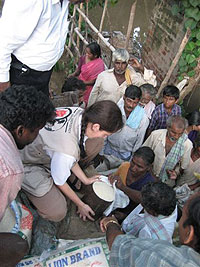 |
| Damaris helps with rice distributio |
Jandalu Koloni, a woman who looked more like a girl, took my hand and gave me her four-year-old son Kaliani to carry. She wanted to show me the situation in the village and took me around. Even if it was a tragic picture, wherever I looked the women and especially the children were lovely, taking my hand and asking me about my name. That was about the only sentence they could speak in English but we smiled at each other and there was an understanding that went beyond language barriers.
We had to leave because it was getting dark. The full moon was shining when we drove back. That was the only light as the whole area is without electricity since the heavy rains came. Today the sun had been shining but there may be another rainy day tomorrow. Everything was dark and silent around us and I felt both shaken and moved by the experiences of the day.
There was still so much to do, still so many hungry people without food. It was very sad to realise our limitations. But at least some people will be enjoying a warm meal tonight.
